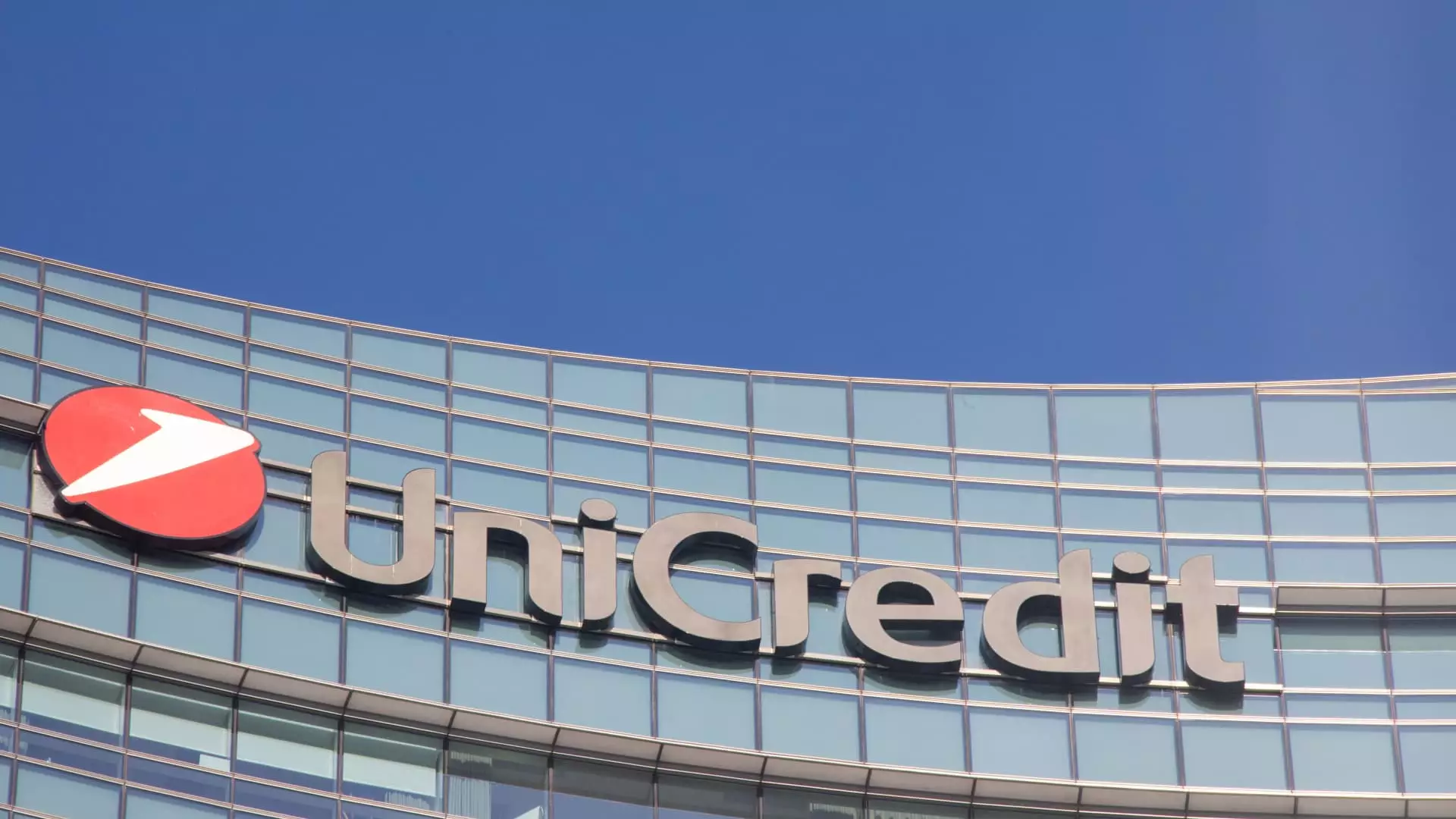In a significant move poised to reshape the Italian banking sector, UniCredit has proposed an acquisition of Banco BPM, valuing the latter at approximately 10 billion euros ($10.5 billion). This strategic decision, articulated on a recent Monday, signifies UniCredit’s clear intentions to expand its footprint, claiming that this initiative stands apart from its ongoing interest in the German lender, Commerzbank. The offer, priced at 6.657 euros per share, represents a minimal premium over Banco BPM’s closing price of 6.644 euros, indicating a calculated yet aggressive approach aimed at enticing shareholders.
The all-stock nature of this deal suggests that UniCredit is leveraging its market strength to consolidate power within the financial sector, a move that echoes sentiments previously expressed regarding the potential for consolidation among European banks. Observers have noted that the European banking landscape has long been perceived as conducive to mergers, particularly with cash-rich entities like UniCredit often positioning themselves as key players in this game.
Market responses to the acquisition proposal were immediate and revealing. In early trading, shares of UniCredit experienced a 1.7% decline, while Banco BPM’s stock surged by 5%. This divergence underscores the market’s perception of the proposal, where UniCredit’s offer may have raised concerns among its investor base, juxtaposed with Banco BPM’s stakeholders viewing the offer as a favorable exit option. The interplay between these stocks reflects a broader narrative of uncertainty and optimism surrounding potential consolidations.
Additionally, the ongoing pursuit of Commerzbank adds layers of complexity to UniCredit’s ambitious agenda. The persistent speculation regarding its German counterpart introduces a considerable variable; further complicating the narrative, UniCredit had recently escalated its Investment in Commerzbank to a notable 21%, with designs to boost this stake even higher. However, the German government, which retains a substantial share in Commerzbank, has voiced caution regarding this potential alliance, highlighting an overarching wariness towards “unfriendly” acquisitions.
Experts are weighing in with mixed opinions on UniCredit’s dual ambitions. Kian Abouhossein from JP Morgan reflected on the practicality of simultaneously pursuing both Banco BPM and Commerzbank, suggesting that the latter may pose greater challenges than initially anticipated. This concern ties back to the regulatory landscape and operational risks associated with merging two substantial banking entities. Banks are frequently subjected to heightened scrutiny, particularly when considering large-scale mergers that could influence market stability.
Moreover, Banco BPM’s recent endeavors, including a bid for the asset manager Anima and acquiring a stake in the state-owned Monte dei Paschi di Siena, indicate its own ambitions for growth and diversification. These movements showcase Banco BPM’s proactive stance in ensuring that it retains relevance in an increasingly competitive environment, further complicating UniCredit’s potential acquisition.
In the backdrop of these developments, UniCredit has recently reported an 8% year-on-year increase in quarterly net profit, amounting to €2.5 billion. This positive financial performance has fostered optimistic projections, elevating its full-year net profit forecast above €9 billion. This robust financial health positions UniCredit well for potential acquisitions. Nonetheless, the emphasis on effective management and integration remains crucial, particularly within a regulatory framework that demands thorough assessments before sanctioning such mergers.
While this proposal to acquire Banco BPM and the pursuit of Commerzbank underscores UniCredit’s ambition to evolve into a formidable pan-European banking entity, the intricacies of execution, regulatory compliance, and market sentiment will ultimately determine the success of these strategic maneuvers. The coming months are likely to be pivotal as stakeholders monitor developments closely, anticipating whether UniCredit can navigate the complexities of the European banking landscape while fostering growth and maintaining shareholder value.

